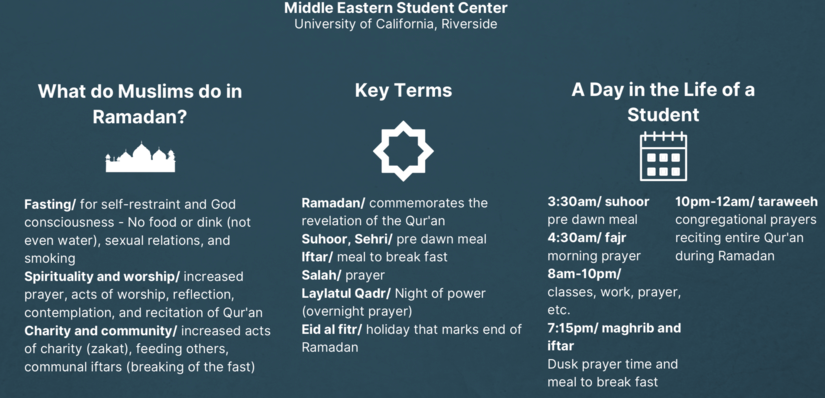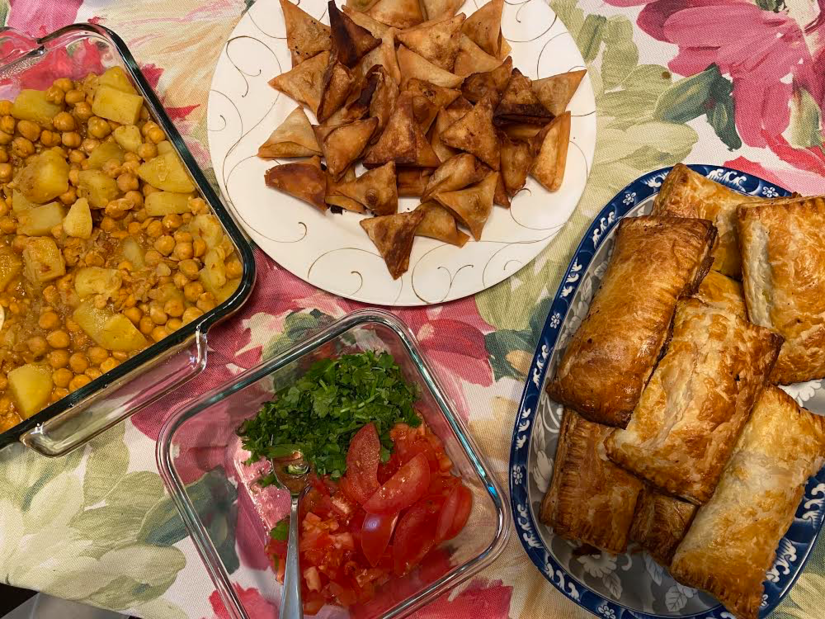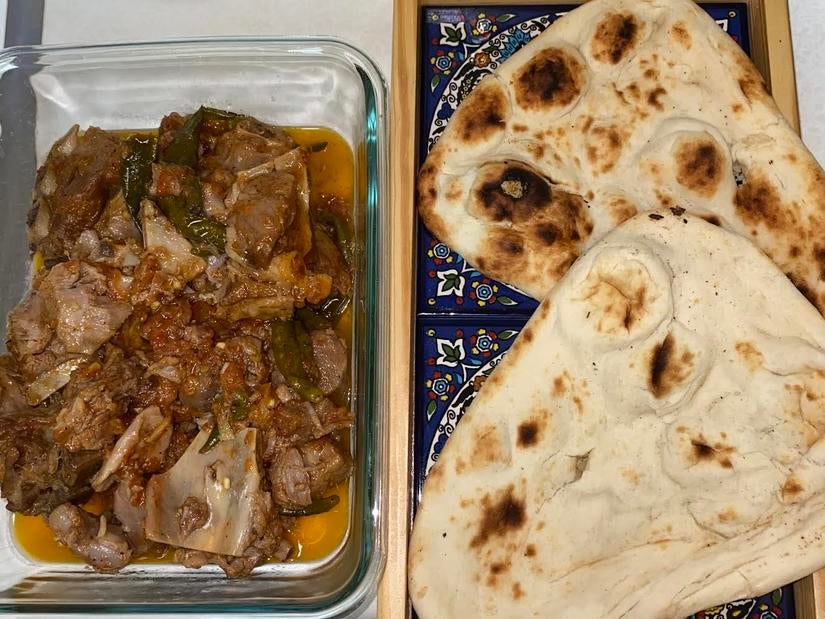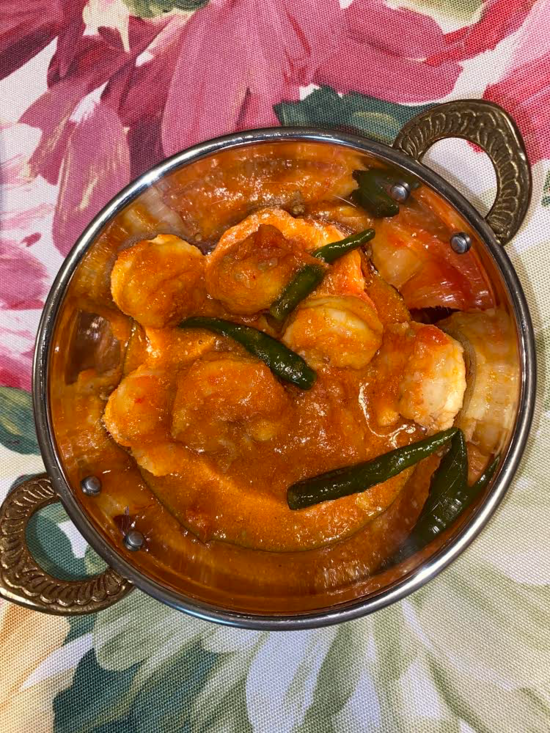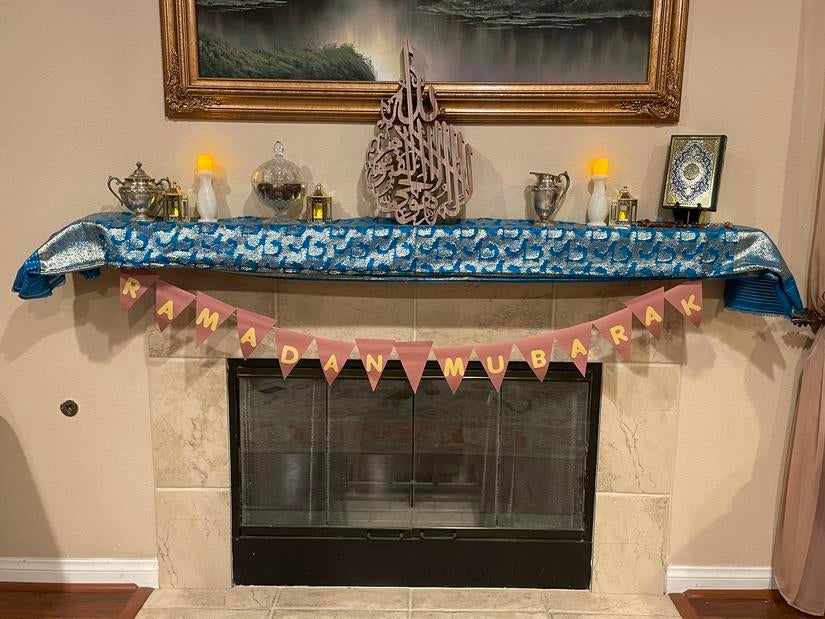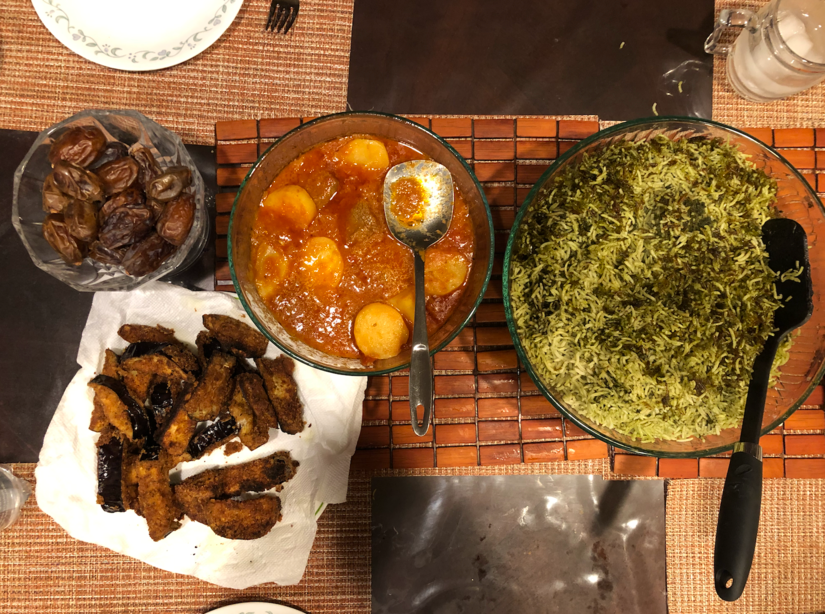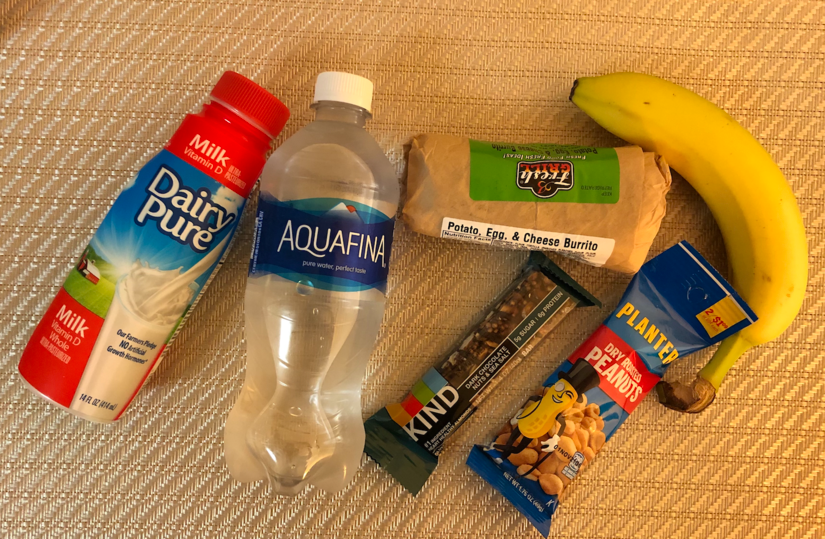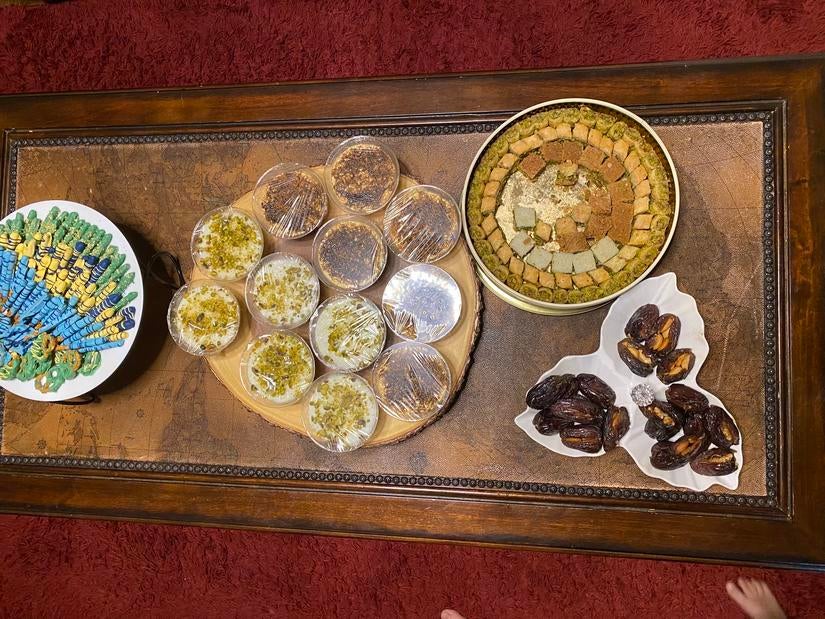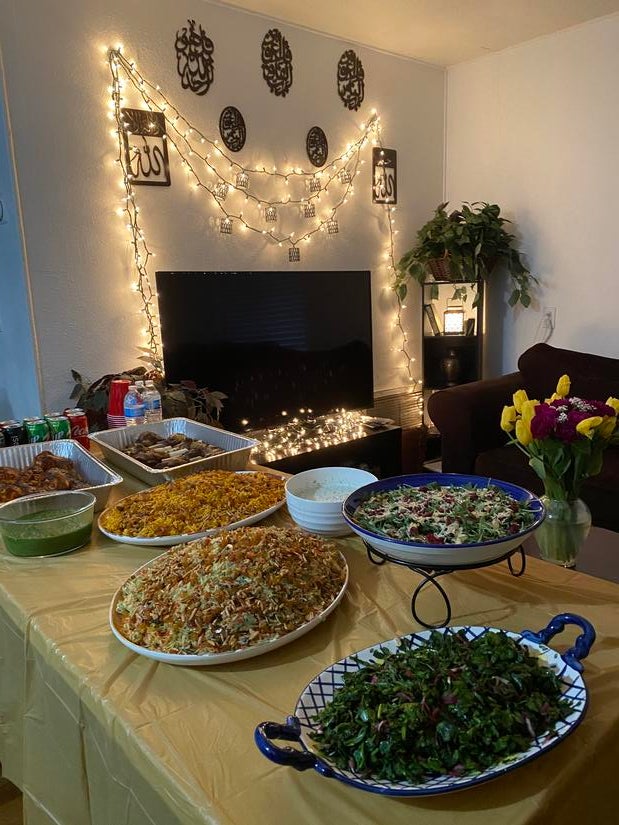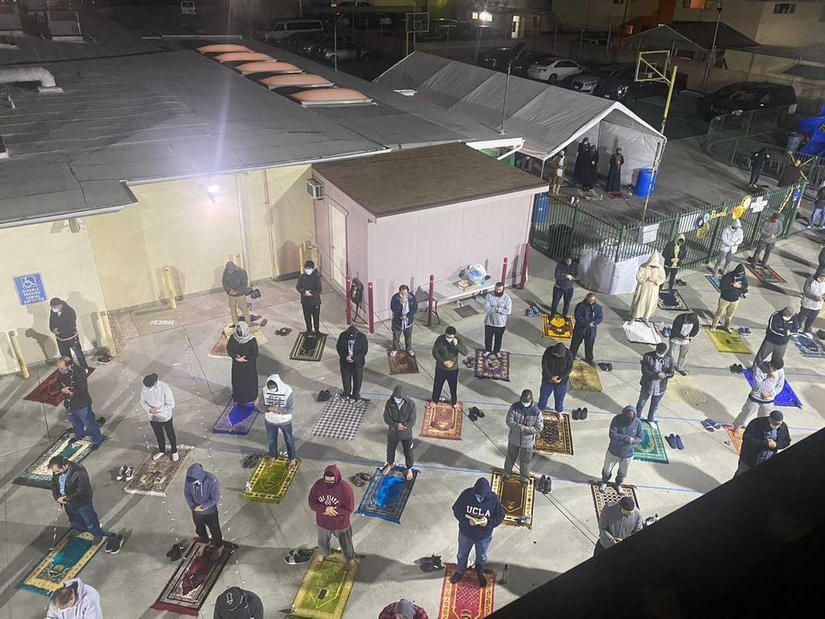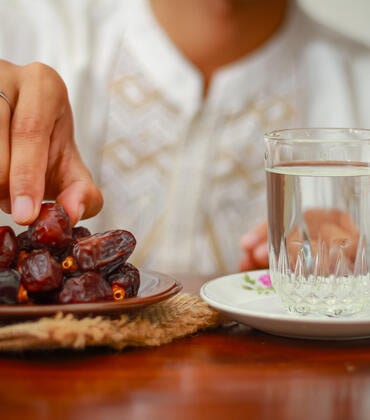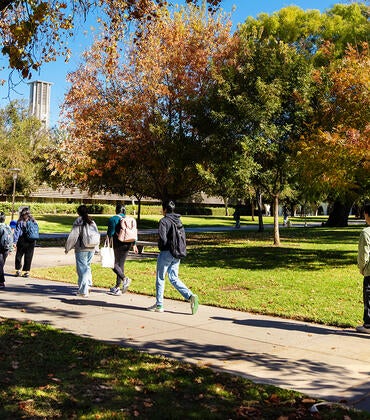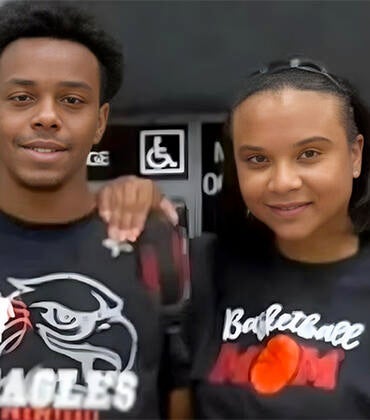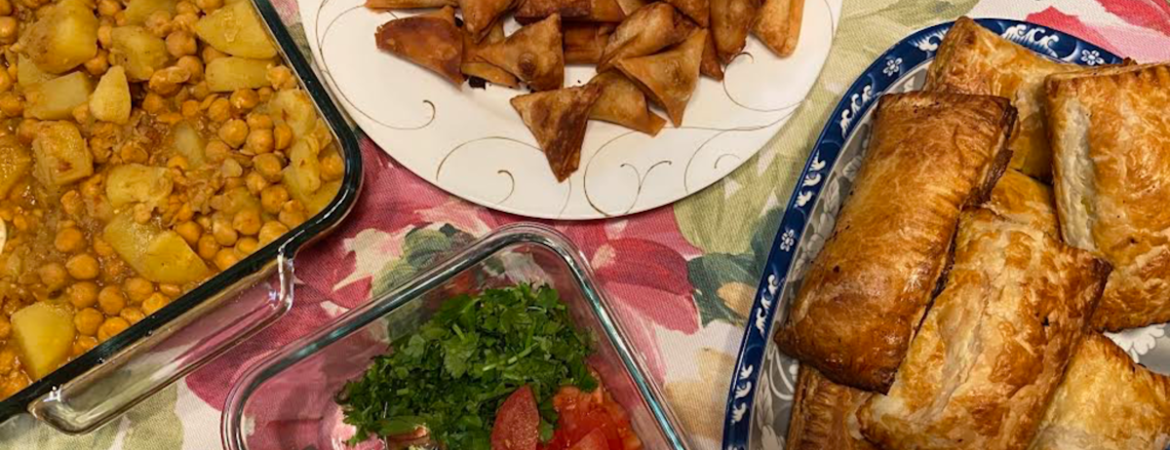
The day starts with prayer and a meal — all before the first sunrays appear.
Preparing traditional dishes with mom, incorporating prayer, and remembering to be grateful, are all part of students’ experiences as they observe Ramadan, the holiest month for the Muslim community.
In the midst of a pandemic, Ramadan, this year observed from April 12- May 12, has become a more meaningful celebration for UC Riverside students.
The monthlong observation is one of five pillars of Islam: belief in one God; praying five times a day; fasting in Ramadan; charity; and pilgrimage to Mecca, said Omar Aziz, director of UCR’s Middle Eastern Student Center.
“People fast, abstain from certain pleasures, and try to become closer to God. It’s a communal event, and with COVID and students being at home, the ‘community’ part is looking a bit different,” Aziz said.
Fasting means no food or water from sunrise to sunset, intended to create space for introspection and detachment from worldly distractions such as social media, sexual relations, or smoking. During this observation, Muslims still work, attend class, and — when COVID was nonexistent — some gathered for communal prayer at mosques. COVID has forced a few students who are on campus this year to celebrate alone, but they look to local restaurants or UCR’s Dining Services venues to find traditional meals.
An important aspect of Ramadan, said Ali Saadat, ‘17, programming coordinator for the Middle Eastern Student Center, is for the community in general to understand that students come from all walks of life and that each one has a different level of religious belief, depth, interest, and devotion. “Just like any other religion,” he said.
Here is how three students have been celebrating Ramadan in the time of COVID:
Zaynah Waseem, 21, is at home in Modesto, Calif. She is a fourth-year global studies and media and cultural studies double major. Ramadan has only included her parents and two sisters since many of her relatives remain living in Pakistan or the East Coast. Before sunrise, the family wakes up for suhoor, the predawn meal or breakfast, that can consist of pheni, a type of noodle, served with warm milk. Other days, suhoor might be paratha with eggs. Paratha is a flat bread, similar to naan. In the evenings, they stop fasting at sunset. They sit as a family and enjoy dinner, known as iftar. On a typical night they will have samosas and egg rolls, drink Rooh Afza, a sweet syrup mix added to lemon water. For dessert they tend to have fruit chaat, a fruit salad.
“For us, breaking fast is a family event. I’ve come to value Ramadan more this year. It really has become a month of reflection, I’m thinking more about important things in the world, being more spiritual and connected to God. Before COVID, I appreciated the community gatherings, hanging out with friends and family. At UCR most of the times we would resort to dining hall food or other times from local Middle Eastern restaurants. On campus the breakfast part was mostly alone because it was around 4 a.m., which meant eating and going back to sleep. For dinner it was more with friends. Now, I’m just checking in with friends.”
Mariam Danish, 21, is at home in Temecula. She is a fourth-year business administration major. Danish is a program advisor with UCR’s Residential Life team. Her family consists of both parents and three sisters. Sometimes, an aunt joins them. For iftar, they break fast by first eating a date, saying a prayer, then enjoying the dinner they’ve all helped prepare. For suhoor both mom and dad take turns cooking, at times eggs, other times it’s leftovers from the night before. Suhoor and iftar are at different times every day, depending on what time the sun rises and sets.
“Everyone celebrates in a different way. For me, it’s a month of gratitude. In my everyday life, I tend to get lost and don’t count all my blessings. For me, the fasting portion represents the struggle that others might feel. I might not think about others who do not have shelter, food, water. We also give back to the community through donations, charity or volunteering. I’ve been thinking a lot about gratitude and being grateful for everything I have in my life. None of my friends who fast are in Riverside at the moment and because of COVID, we don’t want to fast together at the moment.”
Batool Abdaljawad, 18, is at home in Hemet. She is a first-year math major who — like thousands of other first-year students — started college in a remote learning environment. Before the pandemic hit, she visited UCR and knew this is where she wanted to be. Her family consists of both parents, four siblings, and a grandma. It’s also an opportunity for her, her sisters, mom, and grandma to cook together.
“Our family goes about our day, school, work. Then about 6 p.m. we go into the kitchen to help mom. Suhoor and Iftar can consist of soups, salad, heavy meats to get nutrients we’ll need for the day, and sweets. We also have water to keep as hydrated as possible. At mosque, when it was open, we would have prayers and reading at night. I chose UCR because of the Muslim community, it is tight-knit. Also, the Muslim Student Association is great. When I went there it felt it so normal; it wasn’t like I was out of place. Now it’s virtual. MSA brings in speakers via Zoom; it’s nice to have everyone absorb Islamic material and hang out together.
